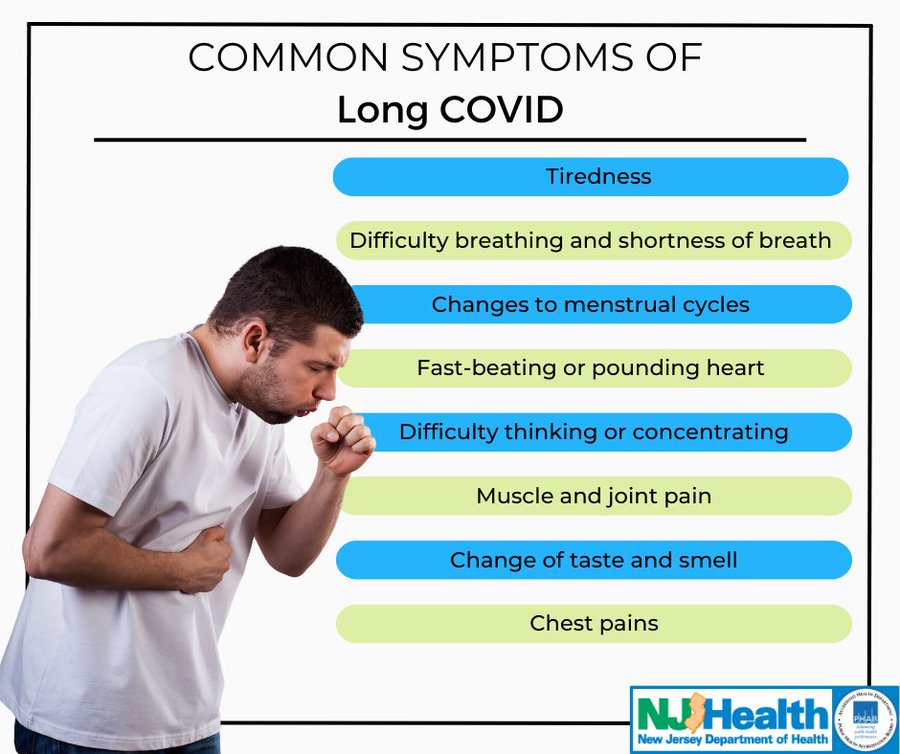My son is very hyperactive and also has strange behaviors. He likes banging on doors, kicking things and making loud noises to get our attention. We’re having a hard time now as he’s really difficult… More
My Long Covid Battle – Can you solve the puzzle?
Quick summary:
In my case, 3 months after a non-hospitalized Covid infection, I developed
substernal chest pain for 6 months on exertion. (I am an avid runner and lift
weights 4x/week, no previous cardiac pathology, no family Hx – only light asthma)
Then, while on a medical school rotation, I developed atrial flutter – and 5 months after an ablation
procedure at NYU, I am still experiencing debilitating inflammation (feels like substernal chest pain)
upon exertion and with anxiety – to the point I can barely exercise anymore.
(Clear MRI – normal EF, no coronary artery blockage, no psychiatric Hx – but spasm of LAD noticed during the first cardiac cath procedure, and slightly widened aortic root of 4.4)
While the mechanism of the pain has been diagnosed as symptomatic left
bundle branch block (from aberration), I am symptomatic even with movement, even
taking showers or drinking water (worse with colds) –
Recent case studies are showing that His-bundle branch pacing is beneficial for
patients with no heart pathology and LBBB. However, upon reading up on long covid
I came to realize that it might all just be long covid…even my LBBB.
I hope that by sharing my story and records we can get closer to finding a remedy for
everyone suffering from long covid symptoms.

Comments welcome!
Painful Left Bundle Branch (LBBB) Syndrome & Long COVID: What is the cure?
I was diagnosed with painful (symptomatic) left bundle branch syndrome in August 2023, about 4 months after contracting COVID 19.
After 6 months of steadily worsening symptoms with exercise and at rest (anxiety-related), I develped atrial flutter, and received an ablation during an electrophysiology study – with excellent doctor …very satisfied with the service.
(I have a normal heart MRI, normal ejection fraction, normal EKG at rest)
The symptoms during exercise seem to have improved. This is not to say that the substernal chest pain and shortness of breath have dissapeared, just that the symptoms seem to be improving with exercise. I run 3-4 times per week, and lift weights 4-5 times per week. This improvement with exercise has been documented in studies such as this one:
Exercise Induced Left Bundle Branch Block Treated with Cardiac Rehabilitation: A Case Report and a Review of the Literature.
Also, there have been reports of success in treating painful LBBB (including anxiety-related symptoms at rest) with His-bundle pacing:
Persistent Exertional Chest Pain in a Marathon Runner: Exercise-induced, Painful, Left Bundle Branch Block Syndrome Treated With His-Bundle Pacing.
However, it has also been said in this article, that excercising for Long Covid patients can worsen symptoms.
The article lists lists four hypotheses on that could explain Long COVID’s initiation and progression:
- After a person has COVID, a persistent virus or remnants of it cause chronic inflammation and ongoing symptoms.
- The body’s disease-fighting B and T cells trigger an immune response—and subsequent inflammation—in a process called autoimmunity. The stimulus that triggers this occurs continuously in the body, making it difficult to pinpoint and shut down.
- Latent (or dormant) viruses inside an individual reactivate. (Every person carries multiple viruses that are dormant. Under certain circumstances, they can be reactivated.)
- Chronic changes occur in the body after the acute inflammatory response (COVID infection). Inflammation in one tissue can damage other tissues.
Paxlovid is the primary treatment for COVID, and there is currently a clinical trial investigating whether Paxlovid would be helpful Long Covid sufferers. Sign up for the YALE LISTEN STUDY if you are interested in participating.
The article says we should be careful about exercise:
Exercise may also be beneficial for some patients, she adds. “It’s just a different way of exercising than we’re accustomed to,” she says. While rehabilitation for non-COVID pulmonary patients may involve a push to build muscle and strength, that type of exercise method can worsen symptoms for some Long COVID patients. “So, we have to figure out a way to get them to exercise that targets their needs but isn’t detrimental to them,” she says.
The article explains ‘POST-EXERTIONAL MALAISE (PEM)’.
From article – Not every symptom falls into just one category. A challenging one is what’s called “post-exertional malaise (PEM),” which Dr. McAlpine describes as a kind of “energy crash” or worsening of other symptoms, such as fatigue, brain fog, and muscle pain after exercise—even if the activity was mild. PEM can range in severity. “Some people will walk up the stairs and then not be able to get out of bed for the rest of the day. Others will go on a 10-minute walk or run errands and then be out of commission for a couple of days,” she says.
Physical problems like PEM can lead to anxiety and depression. “It can be a very scary experience,” Dr. McAlpine says. “People feel disoriented, and this can cause new mental health issues. It can be a long road.” In these cases, mental health treatments, such as cognitive behavioral therapy (CBT) and medications, can help, she adds.
–
My cardiologist told me at first that beta blockers could be used to handle the symptoms…more recently, he told me he would recommend anxiety medicatons such as Klonopin.
As for me…I would rather not take anxiety medicines…mostly becuase I really do not feel anxious…the symptoms I feel at rest are very disruptive to my life. If they do not subside, I will contact one of the authors of the case studies who report sucess with His-Bundle branch pacing.
Comments welcome!
Coping with PMS mood swings
In the cases where my PMS symptoms cause me to feel sad and depressed, how can I better cope through the week or normalize my mood? I can feel myself as a grey cloud or a charging bull and the emotions are so significant that I can not drop anything. It sticks (arguments, my sensitivities). Is there a way to balance it out? My defense mechanism is to stay away from people…do yoga and meditate, but my incosistencies in those practices have this firey woman erupting. Any ideas?
Cats & Dogs for Autistic Children
My son was diagnosed as having autism. I really wanted to know if you know how effective keeping a pretty cat or dog might be in helping him develop and grow. I have read of its benefits but can you tell me what you know from the research?
8-year-old boy who enjoys breaking the rules and getting in trouble
My 8-year-old boy seems to enjoy breaking the rules and getting in trouble. I am constantly getting complaints from his teacher that he is very disruptive in class and that he is bullying other children. Sometimes he refuses to go to school. I have to force him to go to bed. He leaves the house to play outside with his friends when he hasn’t completed his homework. We try to teach him right from wrong and we do not expose him to violence on TV or the household. How can we help Robby behave?
Feelings of apathy after trauma
I am concerned with my indifference toward others and dislike of being in social situations. Is the feeling of apathy normal after having been through a lot of traumatic situations and deaths from childhood to teenage years? I’m often told people deal with death in different ways but I always feel like I could have stopped it or it should have been me. I tried therapy once and did not like the psychologist so now I am wary of more visits. What advice do you have for me?
How can I treat depression without pharmaceuticals?
I have been depressed for about 4 months. I was just sad at first. Now depression is interfering with my life. I do not want to get out of bed or leave my house. I find myself making excuses to friends and family for why I cannot go over during the holidays. But, I am afraid of taking antidepressant medications. I have taken Prozac before and felt like a complete zombie. Are there any methods of treating depression without pills?
Talking to a child about their terminal illness
My 7-year-old niece has a terminal illness, leukemia, and things are not looking good, especially with the recent relapse. In such cases, how does a family go about explaining the child’s death to them? I think it is cruel constantly promising she will be fine. What has your experience taught you is the best approach to this situation?
My parents have abandoned me
I’m in a lot of trouble. My parents have abandoned me. I have no rights here. Please help!
I’m afraid of social settings
I like being around people but after these years of self-reflection, I realized I’m afraid of social settings. It’s ironic because I avoid people on my own but I feel so incredibly lonely. I can’t have people stare at me when I eat, it’s hard for me to look at people in the eye, and I get really nervous talking to people in general. How do I stop this? I know I like to be around people but I’m just hindered by my own fear.














